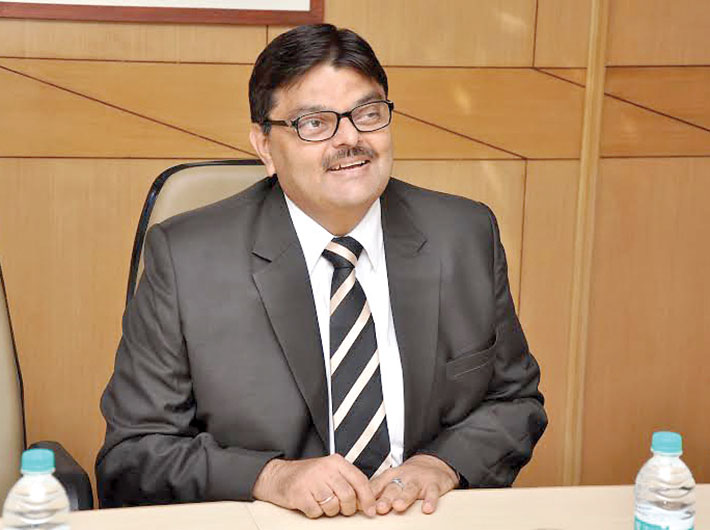PSU giant Steel Authority of India Ltd (SAIL) has always been proactive in carrying out its CSR activities. In an email interview, its CMD CS Verma discusses his organisation’s plans for the immediate future. Edited excerpts:
CSR has always been on the PSUs’ agenda. But with the new law it has become a mandatory and an accountable exercise. How will SAIL’s perception towards CSR change?
SAIL has been a pioneer in social responsibility since its inception more than five decades ago, before Corporate Social Responsibility became a buzzword. SAIL has been playing pivotal role in bringing social and cultural transformation. SAIL put in place systems for socio-economic development of the neighbourhoods and communities surrounding its plants and units. Apart from the business of manufacturing steel, the objective of the company is to conduct business in ways that produces social, environmental and economic benefits to the communities in which it operates. With the underlying philosophy and a credo to ‘make a meaningful difference in people’s lives’, SAIL has in place a board-level sub-committee to monitor the CSR initiatives implemented by our CSR cells in various units. This sub-committee is headed by an independent director with three functional directors as members. Besides, each CSR cell looks after the CSR programmes in its area and the cell is headed by a senior level officer. Each plant/unit has a cross-functional committee looking after the CSR activities. With the introduction of the Companies Act in 2013, the board-level sub-committee has been reconstituted as CSR committee.
Will there be a change in the structure of the CSR activities currently conducted by SAIL?
We have a well-structured organisational mechanism for planning, monitoring and reporting CSR activities in consultation with local authorities such as panchayats, district and state authorities etc.
Our thrust on capacity building, empowerment of communities, socio-economic growth, environment protection, use of green and energy-efficient technologies, development of backward regions and upliftment of under-privileged sections shall continue. We will take appropriate steps, if required, to bring in the necessary improvements and changes in line with the statutory provisions of the Companies Act.
What would be the objectives with which the company would implement CSR?
We recognise that our business activities have a direct and indirect impact on the society. The company is committed to continuously improve its social responsibilities, environment and economic practices to make positive contribution to the society. Towards this commitment we have created a positive footprint within the society to make a meaningful difference in the lives of people by continually aligning its initiatives to the goals for sustainable development. We have maintained our commitment to provide quality health and safety, with positive impact on the environment by good environmental practices. SAIL also promotes equality of opportunity and diversity of workforce throughout its business operations. SAIL has contributed immensely to the development of townships in and around its plants, which are today thriving industrial and commercial centres.
Will it have a pan-India approach?
SAIL produces iron and steel at five integrated plants and three special steel plants, located principally in the eastern and central regions of India, closer to domestic sources of raw materials, including the company’s iron ore, limestone and dolomite mines. Most of our plants and areas of operation are located in remote and difficult areas and they are a major focus for our CSR activities. In addition, our marketing offices are spread across India. Our efforts are directed towards helping the underprivileged sections of the society by promoting education, health care, sanitation, portable drinking water, mid-day meals for children and other similar activities in the rural and tribal areas so that they get integrated with the overall development of the country. SAIL has also set up six well-equipped sporting academies for archery, football, hockey and athletics in the vicinity of its plant and mines to provide opportunities to promising children of those areas.
What is your plan for the next five years and which areas would you focus at for implementing CSR?
SAIL’s credo of making a meaningful difference in people’s lives highlights the philosophy of the company to carry out its business operations in a sustainable manner. We shall strive to achieve the millennium development goals while working under the ambit of Companies Act, 2013. Similarly many leading corporate houses are adopting CSR with the objectives of ensuring inclusive growth.
The government’s current approach of also mandating CSR by private companies is a step in the right direction. The Indian corporate sector may be expected to not only continue with their current focus on CSR but increase its thrust in ensuring sustainable development of business and society in the coming years.
Do you think there is a need for an accountability tool for measuring the implementation of CSR by the corporate houses?
There is surely a need for an accountability tool for measuring the implementation of CSR by corporate houses. This can also be achieved by being more transparent, displaying out CSR information in public domain, while enhancing the use of information technology for monitoring and implementing CSR projects with the support of organisations with proven expertise in the field.
Will CSR engage stakeholders and community at large or will it become a corporate-driven activity?
Any social project cannot provide desired results, unless the stakeholders and community are fully involved in the process from planning to implementation. The new Companies Act has definitely put more responsibility on the boards of Companies in deciding the CSR policy and activities, but the soul of the policy is inherently derived from the stakeholders/community at large.
(This interview appeared as part of a CSR special package in May 16-31, 2014 print issue)
